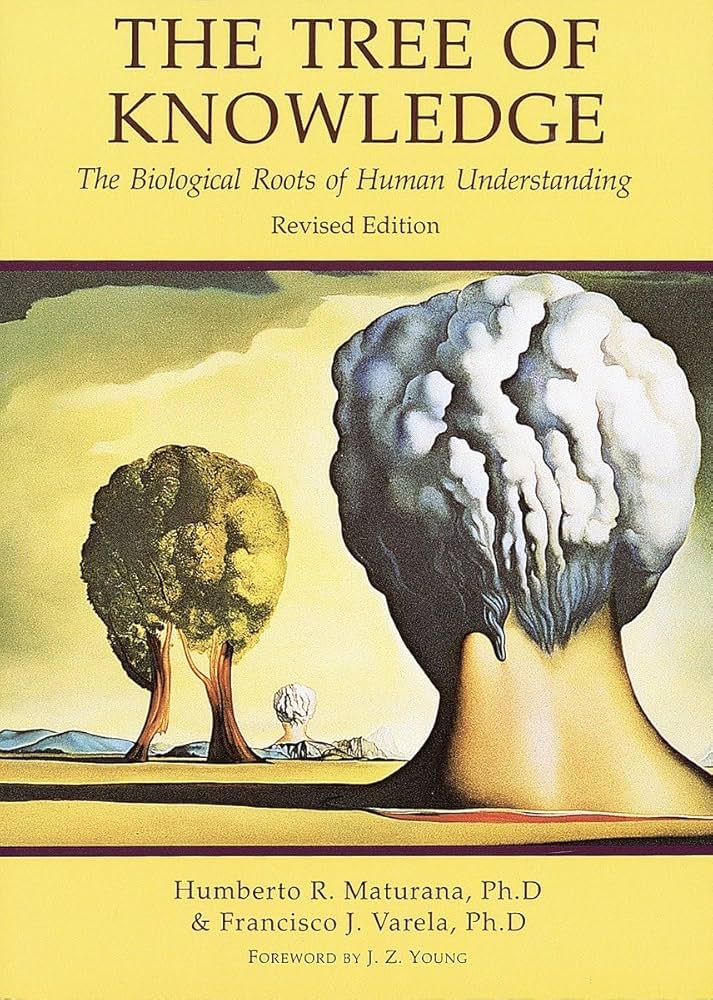
The Tree of Knowledge: The Biological Roots of Human Understanding
Book Description
What if the roots of human understanding lie buried deep within the web of biology? "The Tree of Knowledge: The Biological Roots of Human Understanding" unfurls a captivating narrative that intertwines science and philosophy, revealing how our perceptions, emotions, and relationships are not just abstract concepts but vital expressions of our biological heritage. Through breathtaking insights, this groundbreaking exploration unveils the intricate connections between life and thought, suggesting that humanity's greatest mysteries lie in its evolutionary past. Can the key to unlocking our consciousness be found within the very fabric of our existence?
Quick Book Summary
"The Tree of Knowledge: The Biological Roots of Human Understanding" by Humberto R. Maturana explores the idea that human cognition is fundamentally a biological phenomenon. Challenging traditional views that separate mind and body or objectivity and subjectivity, the authors argue that our perceptions, emotions, and understanding emerge from the specific biological processes of living organisms. Drawing from systems theory and autopoiesis, they suggest that knowledge is not a passive reflection of an external world, but an active, embodied construction rooted in our evolutionary history. Ultimately, the book invites readers to rethink the essence of knowledge, awareness, and reality, proposing that our social interactions and consciousness are inextricably linked to our biological structure and history.
Summary of Key Ideas
Table of Contents
Cognition as a Biological Phenomenon
The book begins by redefining cognition as a biological process, intricately tied to the living systems that generate it. Maturana and Varela challenge the Cartesian dualism, arguing that mind and body are not separate but deeply integrated. They introduce the concept of organisms as self-producing (autopoietic) systems, asserting that cognition is a process arising from the organization and operation of these living structures. This perspective grounds understanding within biological reality rather than abstract philosophy, suggesting that the act of knowing is always embodied.
The Role of Autopoiesis in Living Systems
A central theme is the theory of autopoiesis, which describes how living systems maintain and reproduce themselves by preserving their organizational patterns. The authors use this concept to illustrate how perception and knowledge are shaped by an organism’s structure and interactions with its environment. Instead of passively reflecting the world, organisms actively create their own reality through their internal processes. This challenges traditional notions of objectivity, as every living being’s experience is rooted in its unique biological organization.
Perception and the Construction of Reality
Perception, therefore, is portrayed as a constructive act rather than a mere reception of information. The authors emphasize that all knowledge and cognition arise from a specific history of structural coupling—a process wherein an organism’s structure is continuously modified by recurrent interactions with its environment. In this way, what we perceive is always shaped by our biology and history, creating a personalized, context-dependent reality rather than an independent, universal one.
Language, Social Interaction, and Meaning
The book further explains that language and social interaction play essential roles in the development of human understanding. Language is not simply a system for labeling the world but a medium through which humans co-create shared meanings. Our identities, relationships, and communities are constructed through linguistic exchanges, further intertwining biological processes with social phenomena. By examining how meaning is generated collectively, the authors underscore the inherently communal and dynamic nature of human cognition.
Implications for Objectivity and Scientific Understanding
Finally, the implications for science and philosophy are discussed. By challenging the ideal of an objective, detached observer, the book proposes that all scientific and philosophical knowledge is rooted in the biological and social context of the observer. This view encourages humility and reflexivity, suggesting that objectivity is not absolute but emerges from shared patterns of experience and communication. "The Tree of Knowledge" ultimately offers a radical rethinking of human understanding, stressing our biological embeddedness and the creative, participatory nature of cognition.
Download This Summary
Get a free PDF of this summary instantly — no email required.





